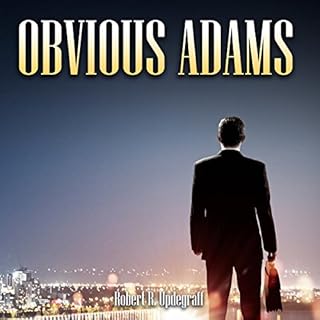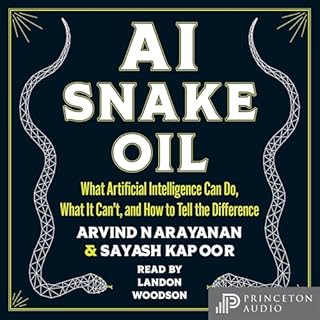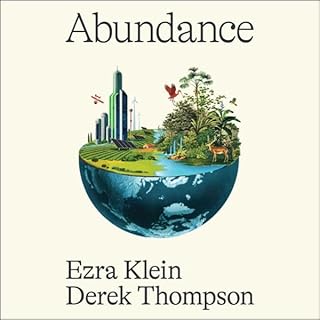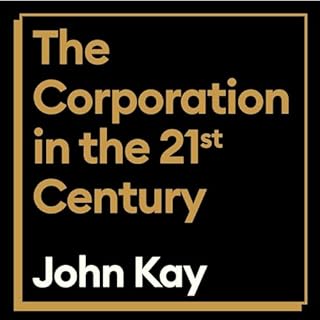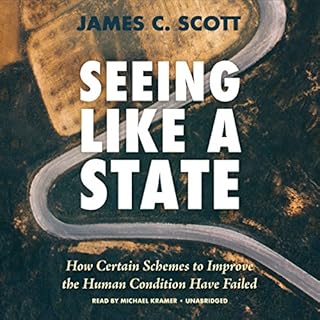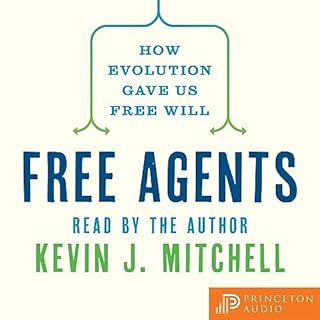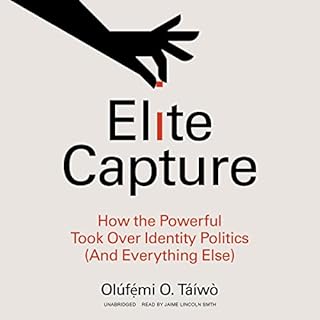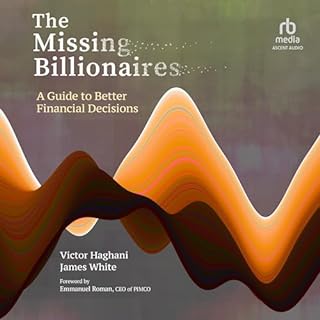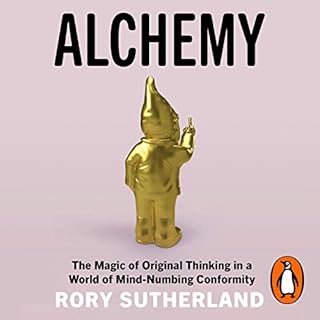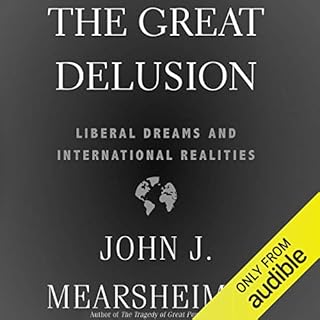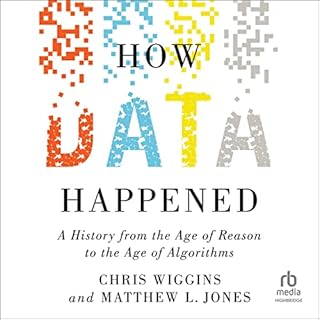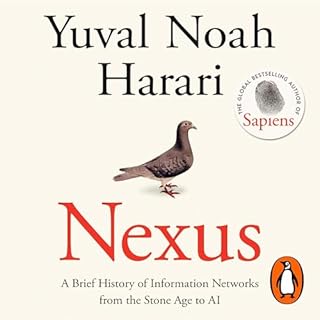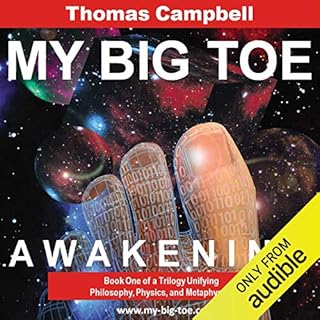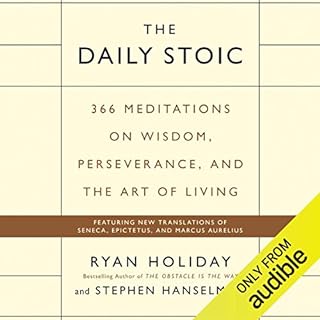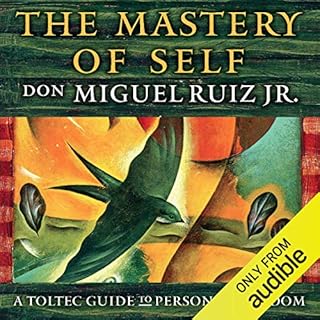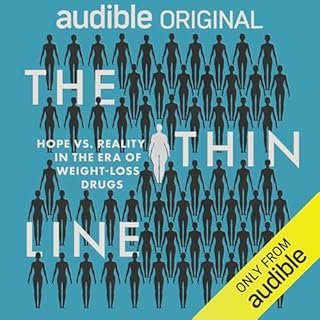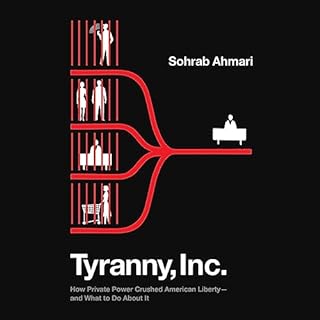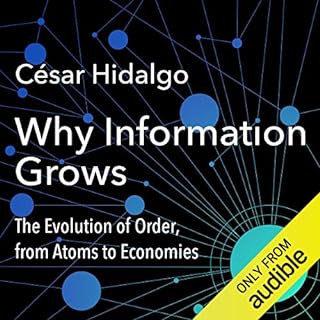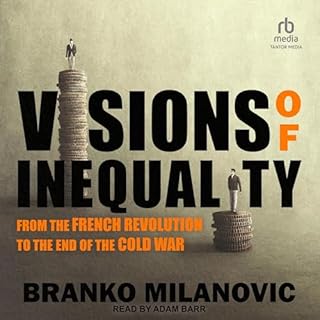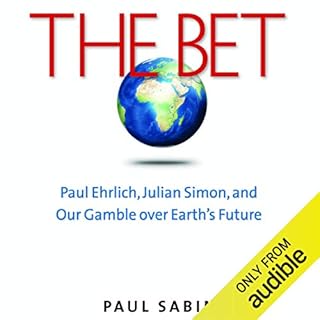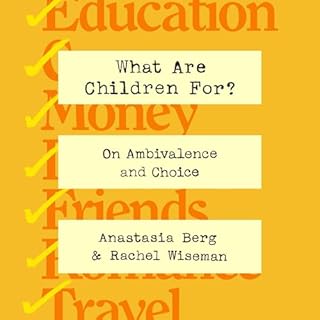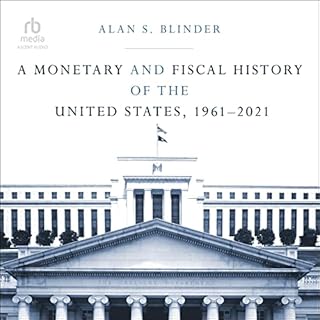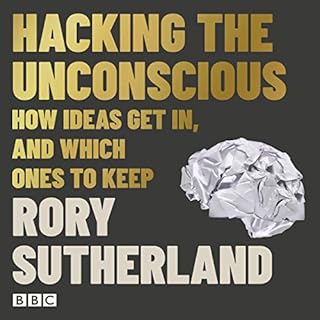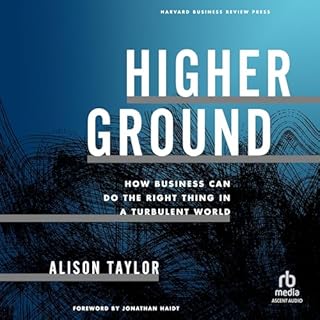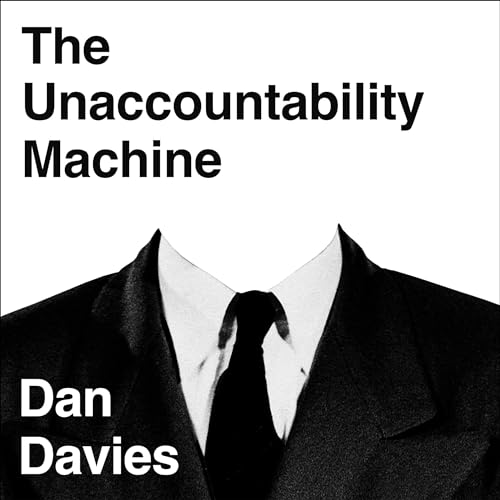
The Unaccountability Machine
Why Big Systems Make Terrible Decisions - and How The World Lost its Mind
Failed to add items
Add to Cart failed.
Add to Wish List failed.
Remove from wishlist failed.
Adding to library failed
Follow podcast failed
Unfollow podcast failed
 Prime members: New to Audible?
Prime members: New to Audible?Get 2 free audiobooks during trial.
Buy for $18.15
No default payment method selected.
We are sorry. We are not allowed to sell this product with the selected payment method
-
Narrated by:
-
Peter Dickson
-
By:
-
Dan Davies
About this listen
'A corporation, or a government department isn't a conscious being, but it is an artificial intelligence. It has the capability to take decisions which are completely distinct from the intentions of any of the people who compose it. And under stressful conditions, it can go stark raving mad.'
When we avoid taking a decision, what happens to it? In The Unaccountability Machine, Dan Davies examines why markets, institutions and even governments systematically generate outcomes that everyone involved claims not to want. He casts new light on the writing of Stafford Beer, a legendary economist who argued in the 1950s that we should regard organisations as artificial intelligences, capable of taking decisions that are distinct from the intentions of their members.
Management cybernetics was Beer's science of applying self-regulation in organisational settings, but it was largely ignored - with the result being the political and economic crises that that we see today. With his signature blend of cynicism and journalistic rigour, Davies looks at what's gone wrong, and what might have been, had the world listened to Stafford Beer when it had the chance.
Listeners also enjoyed...
-
Lying for Money
- How Legendary Frauds Reveal the Workings of the World
- By: Dan Davies
- Narrated by: Tim Paige
- Length: 9 hrs and 10 mins
- Unabridged
-
Overall4.5 out of 5 stars 88
-
Performance5 out of 5 stars 78
-
Story4.5 out of 5 stars 78
The way most white-collar crime works is by manipulating institutional psychology. That means creating something that looks as much as possible like a normal set of transactions. The drama comes later, when it all unwinds. Financial crime seems horribly complicated, but there are only so many ways you can con someone out of what’s theirs.
-
5 out of 5 stars
-
Very interesting book!
- By Ebong Eka on 02-21-22
By: Dan Davies
-
Boom
- Bubbles and the End of Stagnation
- By: Byrne Hobart, Tobias Huber
- Narrated by: Rob Grannis
- Length: 8 hrs and 49 mins
- Unabridged
-
Overall4.5 out of 5 stars 22
-
Performance4.5 out of 5 stars 21
-
Story4.5 out of 5 stars 21
A timely investigation of the causes of technological and scientific stagnation, and a radical blueprint for accelerating innovation. From the Moon landing to the dawning of the atomic age, the decades prior to the 1970s were characterized by the routine invention of transformative technologies at breakneck speed. By comparison, ours is an age of stagnation. Median wage growth has slowed, inequality and income concentration are on the rise, and scientific research has become increasingly expensive and incremental.
-
5 out of 5 stars
-
Inspiring and counter intuitive
- By William Treseder on 01-22-25
By: Byrne Hobart, and others
-
Obvious Adams
- By: Robert Rawls Updegraff
- Narrated by: Andrew Morantz
- Length: 41 mins
- Unabridged
-
Overall4.5 out of 5 stars 52
-
Performance5 out of 5 stars 42
-
Story4.5 out of 5 stars 42
A lone man sat at a table by a window in the Dickens Room of the Tip Top Inn, Chicago. He had finished his dinner and was apparently waiting for his black coffee to be served. Two men entered and were shown to a table nearby. Presently one of them glanced at the man by the window. "See that man over there?" he whispered to his companion. "Yes," said the latter, looking disinterestedly in the direction indicated. "Well, that is Obvious Adams."
-
5 out of 5 stars
-
A powerful reminder that there is no sexy quick fix.
- By Patrick C. on 04-27-24
-
AI Snake Oil
- What Artificial Intelligence Can Do, What It Can’t, and How to Tell the Difference
- By: Arvind Narayanan, Sayash Kapoor
- Narrated by: Landon Woodson
- Length: 9 hrs and 58 mins
- Unabridged
-
Overall4.5 out of 5 stars 32
-
Performance4.5 out of 5 stars 31
-
Story4.5 out of 5 stars 31
Confused about AI and worried about what it means for your future and the future of the world? You’re not alone. AI is everywhere—and few things are surrounded by so much hype, misinformation, and misunderstanding. In AI Snake Oil, computer scientists Arvind Narayanan and Sayash Kapoor cut through the confusion to give you an essential understanding of how AI works, why it often doesn’t, where it might be useful or harmful, and when you should suspect that companies are using AI hype to sell AI snake oil—products that don’t work, and probably never will.
-
1 out of 5 stars
-
Basic level information nothing new here
- By Al on 10-09-24
By: Arvind Narayanan, and others
-
Abundance
- By: Ezra Klein, Derek Thompson
- Length: 9 hrs
- Unabridged
-
Overall0 out of 5 stars 0
-
Performance0 out of 5 stars 0
-
Story0 out of 5 stars 0
To trace the global history of the twenty-first century so far is to trace a history of growing unaffordability and shortage. After years of refusing to build sufficient housing, the entire country has a national housing crisis. After years of slashing immigration, we don’t have enough workers. After decades of off-shoring manufacturing, we have a shortage of chips for cars and computers. Despite decades of being warned about the consequences of climate change, we haven’t built anything close to the clean energy infrastructure we need.
By: Ezra Klein, and others
-
The Corporation in the Twenty-First Century
- Why (almost) everything we are told about business is wrong
- By: John Kay
- Narrated by: Peter Wicks
- Length: 14 hrs and 20 mins
- Unabridged
-
Overall3.5 out of 5 stars 3
-
Performance4 out of 5 stars 3
-
Story3.5 out of 5 stars 3
John Kay's incisive overhaul of our ideas about business redefines our understanding of successful commercial activity and the corporation—and describes how we have come to 'love the product' as we 'hate the producer.' This is a brilliant and original work from one of the greatest working economists.
By: John Kay
-
Lying for Money
- How Legendary Frauds Reveal the Workings of the World
- By: Dan Davies
- Narrated by: Tim Paige
- Length: 9 hrs and 10 mins
- Unabridged
-
Overall4.5 out of 5 stars 88
-
Performance5 out of 5 stars 78
-
Story4.5 out of 5 stars 78
The way most white-collar crime works is by manipulating institutional psychology. That means creating something that looks as much as possible like a normal set of transactions. The drama comes later, when it all unwinds. Financial crime seems horribly complicated, but there are only so many ways you can con someone out of what’s theirs.
-
5 out of 5 stars
-
Very interesting book!
- By Ebong Eka on 02-21-22
By: Dan Davies
-
Boom
- Bubbles and the End of Stagnation
- By: Byrne Hobart, Tobias Huber
- Narrated by: Rob Grannis
- Length: 8 hrs and 49 mins
- Unabridged
-
Overall4.5 out of 5 stars 22
-
Performance4.5 out of 5 stars 21
-
Story4.5 out of 5 stars 21
A timely investigation of the causes of technological and scientific stagnation, and a radical blueprint for accelerating innovation. From the Moon landing to the dawning of the atomic age, the decades prior to the 1970s were characterized by the routine invention of transformative technologies at breakneck speed. By comparison, ours is an age of stagnation. Median wage growth has slowed, inequality and income concentration are on the rise, and scientific research has become increasingly expensive and incremental.
-
5 out of 5 stars
-
Inspiring and counter intuitive
- By William Treseder on 01-22-25
By: Byrne Hobart, and others
-
Obvious Adams
- By: Robert Rawls Updegraff
- Narrated by: Andrew Morantz
- Length: 41 mins
- Unabridged
-
Overall4.5 out of 5 stars 52
-
Performance5 out of 5 stars 42
-
Story4.5 out of 5 stars 42
A lone man sat at a table by a window in the Dickens Room of the Tip Top Inn, Chicago. He had finished his dinner and was apparently waiting for his black coffee to be served. Two men entered and were shown to a table nearby. Presently one of them glanced at the man by the window. "See that man over there?" he whispered to his companion. "Yes," said the latter, looking disinterestedly in the direction indicated. "Well, that is Obvious Adams."
-
5 out of 5 stars
-
A powerful reminder that there is no sexy quick fix.
- By Patrick C. on 04-27-24
-
AI Snake Oil
- What Artificial Intelligence Can Do, What It Can’t, and How to Tell the Difference
- By: Arvind Narayanan, Sayash Kapoor
- Narrated by: Landon Woodson
- Length: 9 hrs and 58 mins
- Unabridged
-
Overall4.5 out of 5 stars 32
-
Performance4.5 out of 5 stars 31
-
Story4.5 out of 5 stars 31
Confused about AI and worried about what it means for your future and the future of the world? You’re not alone. AI is everywhere—and few things are surrounded by so much hype, misinformation, and misunderstanding. In AI Snake Oil, computer scientists Arvind Narayanan and Sayash Kapoor cut through the confusion to give you an essential understanding of how AI works, why it often doesn’t, where it might be useful or harmful, and when you should suspect that companies are using AI hype to sell AI snake oil—products that don’t work, and probably never will.
-
1 out of 5 stars
-
Basic level information nothing new here
- By Al on 10-09-24
By: Arvind Narayanan, and others
-
Abundance
- By: Ezra Klein, Derek Thompson
- Length: 9 hrs
- Unabridged
-
Overall0 out of 5 stars 0
-
Performance0 out of 5 stars 0
-
Story0 out of 5 stars 0
To trace the global history of the twenty-first century so far is to trace a history of growing unaffordability and shortage. After years of refusing to build sufficient housing, the entire country has a national housing crisis. After years of slashing immigration, we don’t have enough workers. After decades of off-shoring manufacturing, we have a shortage of chips for cars and computers. Despite decades of being warned about the consequences of climate change, we haven’t built anything close to the clean energy infrastructure we need.
By: Ezra Klein, and others
-
The Corporation in the Twenty-First Century
- Why (almost) everything we are told about business is wrong
- By: John Kay
- Narrated by: Peter Wicks
- Length: 14 hrs and 20 mins
- Unabridged
-
Overall3.5 out of 5 stars 3
-
Performance4 out of 5 stars 3
-
Story3.5 out of 5 stars 3
John Kay's incisive overhaul of our ideas about business redefines our understanding of successful commercial activity and the corporation—and describes how we have come to 'love the product' as we 'hate the producer.' This is a brilliant and original work from one of the greatest working economists.
By: John Kay
-
Seeing Like a State
- By: James C. Scott
- Narrated by: Michael Kramer
- Length: 16 hrs and 6 mins
- Unabridged
-
Overall4.5 out of 5 stars 474
-
Performance4.5 out of 5 stars 387
-
Story4.5 out of 5 stars 383
Why do well-intentioned plans for improving the human condition go tragically awry? Author James C. Scott analyzes failed cases of large-scale authoritarian plans in a variety of fields. Centrally managed social plans misfire, Scott argues, when they impose schematic visions that do violence to complex interdependencies that are not - and cannot - be fully understood. Further, the success of designs for social organization depends upon the recognition that local, practical knowledge is as important as formal, epistemic knowledge.
-
3 out of 5 stars
-
Beats a dead horse and then beats it again
- By Nathan Parker on 10-29-20
By: James C. Scott
-
Free Agents
- How Evolution Gave Us Free Will
- By: Kevin J. Mitchell
- Narrated by: Kevin J. Mitchell
- Length: 10 hrs and 52 mins
- Unabridged
-
Overall4.5 out of 5 stars 55
-
Performance4.5 out of 5 stars 52
-
Story4.5 out of 5 stars 52
Scientists are learning more and more about how brain activity controls behavior and how neural circuits weigh alternatives and initiate actions. As we probe ever deeper into the mechanics of decision making, many conclude that agency—or free will—is an illusion. In Free Agents, leading neuroscientist Kevin Mitchell presents a wealth of evidence to the contrary, arguing that we are not mere machines responding to physical forces but agents acting with purpose.
-
5 out of 5 stars
-
Adding Clarity to Agency
- By Brad Caldwell on 10-10-23
-
Elite Capture
- How the Powerful Took Over Identity Politics (and Everything Else)
- By: Olúfẹ́mi O. Táíwò
- Narrated by: Jaime Lincoln Smth
- Length: 3 hrs and 17 mins
- Unabridged
-
Overall4.5 out of 5 stars 172
-
Performance5 out of 5 stars 143
-
Story4.5 out of 5 stars 143
“Identity politics” is everywhere, polarizing discourse from the campaign trail to the classroom. But the “identity politics” so compulsively referenced bears little resemblance to the concept as first introduced by the radical Black feminist Combahee River Collective. While the Collective articulated a political viewpoint grounded in their own position as Black lesbians with the explicit aim of building solidarity across lines of difference, “identity politics” is now frequently weaponized as a means of closing ranks around ever-narrower conceptions of group interests.
-
5 out of 5 stars
-
An Essential Read
- By TheFrozenBiscuit on 04-22-23
-
The Missing Billionaires
- A Guide to Better Financial Decisions
- By: Victor Haghani, James White
- Narrated by: Victor Haghani, Jon Vertullo
- Length: 11 hrs and 12 mins
- Unabridged
-
Overall3.5 out of 5 stars 14
-
Performance3.5 out of 5 stars 12
-
Story3.5 out of 5 stars 12
Over the past century, if the wealthiest families had spent a reasonable fraction of their wealth, paid taxes, invested in the stock market, and passed their wealth down to the next generation, there would be tens of thousands of billionaire heirs to generations-old fortunes today. The puzzle of The Missing Billionaires is why you cannot find one such billionaire on any current rich list. There are a number of explanations, but this book is focused on one mistake which is of profound importance to all investors: poor risk decisions, both in investing and spending.
-
1 out of 5 stars
-
Play by play description of the stock market being a casino & how to play it…or not!
- By Monag764 on 06-22-24
By: Victor Haghani, and others
-
Money
- The True Story of a Made-Up Thing
- By: Jacob Goldstein
- Narrated by: Jacob Goldstein
- Length: 5 hrs and 37 mins
- Unabridged
-
Overall4.5 out of 5 stars 1,725
-
Performance5 out of 5 stars 1,478
-
Story4.5 out of 5 stars 1,472
The cohost of the popular NPR podcast Planet Money provides a well-researched, entertaining, somewhat irreverent look at how money is a made-up thing that has evolved over time to suit humanity's changing needs.
-
3 out of 5 stars
-
well researched and written but,
- By C&S on 09-29-20
By: Jacob Goldstein
-
Alchemy
- The Surprising Power of Ideas That Don't Make Sense
- By: Rory Sutherland
- Narrated by: Rory Sutherland
- Length: 9 hrs and 38 mins
- Unabridged
-
Overall5 out of 5 stars 114
-
Performance5 out of 5 stars 90
-
Story4.5 out of 5 stars 90
We think we are rational creatures. Economics and business rely on the assumption that we make logical decisions based on evidence. But we aren’t, and we don’t. In many crucial areas of our lives, reason plays a vanishingly small part. Instead we are driven by unconscious desires, which is why placebos are so powerful. We are drawn to the beautiful, the extravagant and the absurd - from lavish wedding invitations to tiny bottles of the latest fragrance. So if you want to influence people’s choices you have to bypass reason.
-
5 out of 5 stars
-
Worth it
- By akinwande ayodeji on 01-17-22
By: Rory Sutherland
-
The Great Delusion
- Liberal Dreams and International Realities
- By: John J. Mearsheimer
- Narrated by: Noah Michael Levine
- Length: 9 hrs and 8 mins
- Unabridged
-
Overall4.5 out of 5 stars 467
-
Performance4.5 out of 5 stars 390
-
Story4.5 out of 5 stars 385
In this major statement, the renowned international-relations scholar John Mearsheimer argues that liberal hegemony, the foreign policy pursued by the United States since the Cold War ended, is doomed to fail. It makes far more sense, he maintains, for Washington to adopt a more restrained foreign policy based on a sound understanding of how nationalism and realism constrain great powers abroad.
-
5 out of 5 stars
-
Dense, fact filled, sober analysis and prescription
- By John Brynjolfsson on 12-15-18
-
On the Edge
- The Art of Risking Everything
- By: Nate Silver
- Narrated by: Nate Silver
- Length: 15 hrs and 5 mins
- Unabridged
-
Overall4 out of 5 stars 364
-
Performance4 out of 5 stars 341
-
Story4 out of 5 stars 341
In the bestselling The Signal and the Noise, Nate Silver showed how forecasting would define the age of Big Data. Now, in this timely and riveting new book, Silver investigates "The River," or those whose mastery of risk allows them to shape—and dominate—so much of modern life. These professional risk takers—poker players and hedge fund managers, crypto true-believers and blue-chip art collectors—can teach us much about navigating the uncertainty of the 21st century.
-
5 out of 5 stars
-
Fascinating report from a distant land
- By David Benjamin on 09-14-24
By: Nate Silver
-
How Data Happened
- A History from the Age of Reason to the Age of Algorithms
- By: Chris Wiggins, Matthew L. Jones
- Narrated by: Eric Jason Martin
- Length: 10 hrs and 27 mins
- Unabridged
-
Overall4 out of 5 stars 12
-
Performance4 out of 5 stars 12
-
Story4 out of 5 stars 12
From facial recognition—capable of checking us onto flights or identifying undocumented residents—to automated decision systems that inform everything from who gets loans to who receives bail, each of us moves through a world determined by data-empowered algorithms. But these technologies didn't just appear: they are part of a history that goes back centuries, from the census enshrined in the US Constitution to the birth of eugenics in Victorian Britain to the development of Google search.
-
4 out of 5 stars
-
worthwhile, if somewhat and occasionally obtuse
- By Michael on 02-25-24
By: Chris Wiggins, and others
-
Complexity
- The Emerging Science at the Edge of Order and Chaos
- By: M. Mitchell Waldrop
- Narrated by: Mikael Naramore
- Length: 17 hrs and 8 mins
- Unabridged
-
Overall4.5 out of 5 stars 306
-
Performance4.5 out of 5 stars 264
-
Story4.5 out of 5 stars 263
In a rarified world of scientific research, a revolution has been brewing. Its activists are not anarchists, but rather Nobel Laureates in physics and economics and pony-tailed graduates, mathematicians, and computer scientists from all over the world. They have formed an iconoclastic think-tank and their radical idea is to create a new science: complexity. They want to know how a primordial soup of simple molecules managed to turn itself into the first living cell--and what the origin of life some four billion years ago can tell us about the process of technological innovation today.
-
1 out of 5 stars
-
You won't learn anything you didn't know
- By Dennis E. Alwine on 12-26-20
-
Expectations Investing
- Reading Stock Prices for Better Returns
- By: Michael J. Mauboussin, Alfred Rappaport
- Narrated by: Steve Routman
- Length: 6 hrs and 59 mins
- Unabridged
-
Overall4.5 out of 5 stars 10
-
Performance4.5 out of 5 stars 7
-
Story4.5 out of 5 stars 7
Expectations Investing offers a unique and powerful alternative for identifying value-price gaps. Rappaport and Mauboussin provide everything the listener needs to utilize the discounted cash flow model successfully. And they add an important twist: They suggest that rather than forecasting cash flows, investors should begin by estimating the expectations embedded in a company's stock price.
-
5 out of 5 stars
-
Great book for a more educated investor. Definitely not the first book you should read from this outstanding author Mausboussin
- By BARRY on 11-25-22
By: Michael J. Mauboussin, and others
-
Nexus
- A Brief History of Information Networks from the Stone Age to AI
- By: Yuval Noah Harari
- Narrated by: Vidish Athavale
- Length: 17 hrs and 28 mins
- Unabridged
-
Overall4.5 out of 5 stars 146
-
Performance4.5 out of 5 stars 127
-
Story4.5 out of 5 stars 127
Stories brought us together. Books spread our ideas – and our mythologies. The internet promised infinite knowledge. The algorithm learned our secrets – and then turned us against each other. What will AI do? NEXUS is the thrilling account of how we arrived at this moment, and the urgent choices we must now make to survive – and to thrive.
-
1 out of 5 stars
-
Propagation of his political viewpoints: No facts but rather his opinions
- By Florian Stanglmeier on 12-10-24
Related to this topic
-
The Art of War
- By: Sun Tzu
- Narrated by: Aidan Gillen
- Length: 1 hr and 7 mins
- Unabridged
-
Overall4.5 out of 5 stars 41,738
-
Performance4.5 out of 5 stars 34,578
-
Story4.5 out of 5 stars 34,159
The 13 chapters of The Art of War, each devoted to one aspect of warfare, were compiled by the high-ranking Chinese military general, strategist, and philosopher Sun-Tzu. In spite of its battlefield specificity, The Art of War has found new life in the modern age, with leaders in fields as wide and far-reaching as world politics, human psychology, and corporate strategy finding valuable insight in its timeworn words.
-
5 out of 5 stars
-
The actual book The Art of War, not a commentary
- By Nemo71 on 12-31-19
By: Sun Tzu
-
My Big TOE: Awakening
- Book One of a Trilogy Unifying Philosophy, Physics, and Metaphysics
- By: Thomas Campbell
- Narrated by: Thomas Campbell
- Length: 11 hrs and 11 mins
- Unabridged
-
Overall4.5 out of 5 stars 503
-
Performance4.5 out of 5 stars 435
-
Story4.5 out of 5 stars 430
My Big TOE: Awakening, written by a nuclear physicist in the language of contemporary culture, unifies science and philosophy, physics and metaphysics, mind and matter, purpose and meaning, the normal and the paranormal. The entirety of human experience (mind, body, and spirit) including both our objective and subjective worlds is brought together under one seamless scientific understanding.
-
2 out of 5 stars
-
What a Trip (but to where?)
- By Michael on 11-26-13
By: Thomas Campbell
-
The Daily Stoic
- 366 Meditations on Wisdom, Perseverance, and the Art of Living
- By: Ryan Holiday, Stephen Hanselman
- Narrated by: Brian Holsopple
- Length: 10 hrs and 6 mins
- Unabridged
-
Overall5 out of 5 stars 3,262
-
Performance4.5 out of 5 stars 2,738
-
Story5 out of 5 stars 2,703
Why have history's greatest minds - from George Washington to Frederick the Great to Ralph Waldo Emerson along with today's top performers, from Super Bowl-winning football coaches to CEOs and celebrities - embraced the wisdom of the ancient Stoics? Because they realize that the most valuable wisdom is timeless and that philosophy is for living a better life, not a classroom exercise. The Daily Stoic offers a daily devotional of Stoic insights and exercises, featuring all-new translations.
-
2 out of 5 stars
-
Not well made as audio
- By Andreas on 12-27-16
By: Ryan Holiday, and others
-
The Mastery of Self
- A Toltec Guide to Personal Freedom
- By: Don Miguel Ruiz Jr.
- Narrated by: Charlie Varon
- Length: 3 hrs and 30 mins
- Unabridged
-
Overall5 out of 5 stars 4,474
-
Performance5 out of 5 stars 3,716
-
Story5 out of 5 stars 3,696
The ancient Toltecs believed that life, as we perceive it, is a dream. We each live in our own personal dream, and these come together to form the dream of the planet, or the world in which we live. Problems arise when our perception of the dream becomes clouded with negativity, drama, and judgment (of ourselves and others), because it's in these moments of suffering that we have forgotten that we are the architects of our own reality and we have the power to change our dream if we choose.
-
5 out of 5 stars
-
listen.. .then listen again
- By Casiano on 12-22-16
-
The Thin Line
- Hope vs. Reality in the Era of Weight-Loss Drugs
- By: Scaachi Koul
- Narrated by: Scaachi Koul
- Length: 4 hrs and 31 mins
- Original Recording
-
Overall4.5 out of 5 stars 105
-
Performance5 out of 5 stars 102
-
Story4.5 out of 5 stars 102
Over the next five years, millions of more Americans are expected to take Ozempic and other GLP-1 weight-loss drugs, which are rapidly being recognized as the miracle drugs of this century. If you’re not on them, you’ll probably know someone who is. What are the implications of the widespread use of these drugs, both on our bodies and our society? In this show, you’ll meet people across America who are either taking the jab or thinking about it, and the shocking intentional and unintentional results they are seeing.
-
5 out of 5 stars
-
More balanced than expected and very comprehensive
- By Summer Rodriguez on 01-03-25
By: Scaachi Koul
-
The Autobiography of Malcolm X
- As Told to Alex Haley
- By: Malcolm X, Alex Haley
- Narrated by: Laurence Fishburne
- Length: 16 hrs and 52 mins
- Unabridged
-
Overall5 out of 5 stars 12,543
-
Performance5 out of 5 stars 11,159
-
Story5 out of 5 stars 11,100
Experience a bold take on this classic autobiography as it’s performed by Oscar-nominated Laurence Fishburne. In this searing classic autobiography, originally published in 1965, Malcolm X, the Muslim leader, firebrand, and Black empowerment activist, tells the extraordinary story of his life and the growth of the Human Rights movement. His fascinating perspective on the lies and limitations of the American dream and the inherent racism in a society that denies its non-White citizens the opportunity to dream, gives extraordinary insight into the most urgent issues of our own time.
-
4 out of 5 stars
-
it's Nearly perfect
- By Kerry on 09-16-20
By: Malcolm X, and others
-
The Art of War
- By: Sun Tzu
- Narrated by: Aidan Gillen
- Length: 1 hr and 7 mins
- Unabridged
-
Overall4.5 out of 5 stars 41,738
-
Performance4.5 out of 5 stars 34,578
-
Story4.5 out of 5 stars 34,159
The 13 chapters of The Art of War, each devoted to one aspect of warfare, were compiled by the high-ranking Chinese military general, strategist, and philosopher Sun-Tzu. In spite of its battlefield specificity, The Art of War has found new life in the modern age, with leaders in fields as wide and far-reaching as world politics, human psychology, and corporate strategy finding valuable insight in its timeworn words.
-
5 out of 5 stars
-
The actual book The Art of War, not a commentary
- By Nemo71 on 12-31-19
By: Sun Tzu
-
My Big TOE: Awakening
- Book One of a Trilogy Unifying Philosophy, Physics, and Metaphysics
- By: Thomas Campbell
- Narrated by: Thomas Campbell
- Length: 11 hrs and 11 mins
- Unabridged
-
Overall4.5 out of 5 stars 503
-
Performance4.5 out of 5 stars 435
-
Story4.5 out of 5 stars 430
My Big TOE: Awakening, written by a nuclear physicist in the language of contemporary culture, unifies science and philosophy, physics and metaphysics, mind and matter, purpose and meaning, the normal and the paranormal. The entirety of human experience (mind, body, and spirit) including both our objective and subjective worlds is brought together under one seamless scientific understanding.
-
2 out of 5 stars
-
What a Trip (but to where?)
- By Michael on 11-26-13
By: Thomas Campbell
-
The Daily Stoic
- 366 Meditations on Wisdom, Perseverance, and the Art of Living
- By: Ryan Holiday, Stephen Hanselman
- Narrated by: Brian Holsopple
- Length: 10 hrs and 6 mins
- Unabridged
-
Overall5 out of 5 stars 3,262
-
Performance4.5 out of 5 stars 2,738
-
Story5 out of 5 stars 2,703
Why have history's greatest minds - from George Washington to Frederick the Great to Ralph Waldo Emerson along with today's top performers, from Super Bowl-winning football coaches to CEOs and celebrities - embraced the wisdom of the ancient Stoics? Because they realize that the most valuable wisdom is timeless and that philosophy is for living a better life, not a classroom exercise. The Daily Stoic offers a daily devotional of Stoic insights and exercises, featuring all-new translations.
-
2 out of 5 stars
-
Not well made as audio
- By Andreas on 12-27-16
By: Ryan Holiday, and others
-
The Mastery of Self
- A Toltec Guide to Personal Freedom
- By: Don Miguel Ruiz Jr.
- Narrated by: Charlie Varon
- Length: 3 hrs and 30 mins
- Unabridged
-
Overall5 out of 5 stars 4,474
-
Performance5 out of 5 stars 3,716
-
Story5 out of 5 stars 3,696
The ancient Toltecs believed that life, as we perceive it, is a dream. We each live in our own personal dream, and these come together to form the dream of the planet, or the world in which we live. Problems arise when our perception of the dream becomes clouded with negativity, drama, and judgment (of ourselves and others), because it's in these moments of suffering that we have forgotten that we are the architects of our own reality and we have the power to change our dream if we choose.
-
5 out of 5 stars
-
listen.. .then listen again
- By Casiano on 12-22-16
-
The Thin Line
- Hope vs. Reality in the Era of Weight-Loss Drugs
- By: Scaachi Koul
- Narrated by: Scaachi Koul
- Length: 4 hrs and 31 mins
- Original Recording
-
Overall4.5 out of 5 stars 105
-
Performance5 out of 5 stars 102
-
Story4.5 out of 5 stars 102
Over the next five years, millions of more Americans are expected to take Ozempic and other GLP-1 weight-loss drugs, which are rapidly being recognized as the miracle drugs of this century. If you’re not on them, you’ll probably know someone who is. What are the implications of the widespread use of these drugs, both on our bodies and our society? In this show, you’ll meet people across America who are either taking the jab or thinking about it, and the shocking intentional and unintentional results they are seeing.
-
5 out of 5 stars
-
More balanced than expected and very comprehensive
- By Summer Rodriguez on 01-03-25
By: Scaachi Koul
-
The Autobiography of Malcolm X
- As Told to Alex Haley
- By: Malcolm X, Alex Haley
- Narrated by: Laurence Fishburne
- Length: 16 hrs and 52 mins
- Unabridged
-
Overall5 out of 5 stars 12,543
-
Performance5 out of 5 stars 11,159
-
Story5 out of 5 stars 11,100
Experience a bold take on this classic autobiography as it’s performed by Oscar-nominated Laurence Fishburne. In this searing classic autobiography, originally published in 1965, Malcolm X, the Muslim leader, firebrand, and Black empowerment activist, tells the extraordinary story of his life and the growth of the Human Rights movement. His fascinating perspective on the lies and limitations of the American dream and the inherent racism in a society that denies its non-White citizens the opportunity to dream, gives extraordinary insight into the most urgent issues of our own time.
-
4 out of 5 stars
-
it's Nearly perfect
- By Kerry on 09-16-20
By: Malcolm X, and others
People who viewed this also viewed...
-
Lying for Money
- How Legendary Frauds Reveal the Workings of the World
- By: Dan Davies
- Narrated by: Tim Paige
- Length: 9 hrs and 10 mins
- Unabridged
-
Overall4.5 out of 5 stars 88
-
Performance5 out of 5 stars 78
-
Story4.5 out of 5 stars 78
The way most white-collar crime works is by manipulating institutional psychology. That means creating something that looks as much as possible like a normal set of transactions. The drama comes later, when it all unwinds. Financial crime seems horribly complicated, but there are only so many ways you can con someone out of what’s theirs.
-
5 out of 5 stars
-
Very interesting book!
- By Ebong Eka on 02-21-22
By: Dan Davies
-
How the World Became Rich
- The Historical Origins of Economic Growth
- By: Mark Koyama, Jared Rubin
- Narrated by: Adam Barr
- Length: 10 hrs and 15 mins
- Unabridged
-
Overall4.5 out of 5 stars 34
-
Performance4.5 out of 5 stars 28
-
Story4.5 out of 5 stars 28
Mark Koyama and Jared Rubin dive into the many theories of why modern economic growth happened when and where it did. They discuss recently advanced theories rooted in geography, politics, culture, demography, and colonialism. Pieces of each of these theories help explain key events on the path to modern riches. Why did the Industrial Revolution begin in eighteenth-century Britain? Why did some European countries, the United States, and Japan catch up in the nineteenth century? Why did it take until the late twentieth and twenty-first centuries for other countries?
-
5 out of 5 stars
-
Nice and insightful
- By Marina on 10-22-24
By: Mark Koyama, and others
-
Tyranny, Inc.
- How Private Power Crushed American Liberty—and What to Do About It
- By: Sohrab Ahmari
- Narrated by: Sohrab Ahmari
- Length: 7 hrs and 30 mins
- Unabridged
-
Overall4.5 out of 5 stars 27
-
Performance4.5 out of 5 stars 24
-
Story4.5 out of 5 stars 24
Over the past two generations, U.S. leaders deregulated big business on the faith that it would yield a better economy and a freer society. But the opposite happened. Americans lost stable, well-paying jobs, Wall Street dominated industry to the detriment of the middle class and local communities, and corporations began to subject us to total surveillance, even dictating what we are, and aren’t, allowed to think. The corporate titans and mega-donors who aligned themselves with this vision knew exactly what they were getting: perfect conditions for what Sohrab Ahmari calls “private tyranny”.
-
3 out of 5 stars
-
Doesn't address the whole picture
- By Penelope M on 09-18-23
By: Sohrab Ahmari
-
Why Information Grows
- The Evolution of Order, from Atoms to Economies
- By: César Hidalgo
- Narrated by: Stephen Hoye
- Length: 5 hrs and 54 mins
- Unabridged
-
Overall4.5 out of 5 stars 386
-
Performance4.5 out of 5 stars 326
-
Story4.5 out of 5 stars 322
What is economic growth? And why, historically, has it occurred in only a few places? Previous efforts to answer these questions have focused on institutions, geography, finances, and psychology. But according to MIT's anti-disciplinarian César Hidalgo, understanding the nature of economic growth demands transcending the social sciences and including the natural sciences of information, networks, and complexity. To understand the growth of economies, Hidalgo argues, we first need to understand the growth of order.
-
5 out of 5 stars
-
Great book!
- By bpjammin on 01-07-17
By: César Hidalgo
-
Franchise
- The Golden Arches in Black America
- By: Marcia Chatelain
- Narrated by: Machelle Williams
- Length: 10 hrs and 37 mins
- Unabridged
-
Overall4.5 out of 5 stars 104
-
Performance4.5 out of 5 stars 90
-
Story4.5 out of 5 stars 91
Often blamed for the rising rates of obesity and diabetes among black Americans, fast food restaurants like McDonald's have long symbolized capitalism's villainous effects on our nation's most vulnerable communities. But how did fast food restaurants so thoroughly saturate black neighborhoods in the first place? In Franchise, acclaimed historian Marcia Chatelain uncovers a surprising history of cooperation among fast food companies, black capitalists, and civil rights leaders, who believed they found an economic answer to the problem of racial inequality.
-
5 out of 5 stars
-
Window into Black Capitalism
- By Keith on 01-13-20
By: Marcia Chatelain
-
Manhunt
- The 12-Day Chase for Lincoln's Killer
- By: James L. Swanson
- Narrated by: Richard Thomas
- Length: 9 hrs and 6 mins
- Abridged
-
Overall4.5 out of 5 stars 1,504
-
Performance4.5 out of 5 stars 783
-
Story4.5 out of 5 stars 792
The murder of Abraham Lincoln set off the greatest manhunt in American history, the pursuit and capture of John Wilkes Booth. From April 14 to April 26, 1865, the assassin led Union cavalry and detectives on a wild 12-day chase through the streets of Washington, D.C., across the swamps of Maryland, and into the forests of Virginia, while the nation, still reeling from the just-ended Civil War, watched in horror and sadness.
-
5 out of 5 stars
-
Fascinating!
- By F. Elizabeth Hauser on 12-14-08
By: James L. Swanson
-
Lying for Money
- How Legendary Frauds Reveal the Workings of the World
- By: Dan Davies
- Narrated by: Tim Paige
- Length: 9 hrs and 10 mins
- Unabridged
-
Overall4.5 out of 5 stars 88
-
Performance5 out of 5 stars 78
-
Story4.5 out of 5 stars 78
The way most white-collar crime works is by manipulating institutional psychology. That means creating something that looks as much as possible like a normal set of transactions. The drama comes later, when it all unwinds. Financial crime seems horribly complicated, but there are only so many ways you can con someone out of what’s theirs.
-
5 out of 5 stars
-
Very interesting book!
- By Ebong Eka on 02-21-22
By: Dan Davies
-
How the World Became Rich
- The Historical Origins of Economic Growth
- By: Mark Koyama, Jared Rubin
- Narrated by: Adam Barr
- Length: 10 hrs and 15 mins
- Unabridged
-
Overall4.5 out of 5 stars 34
-
Performance4.5 out of 5 stars 28
-
Story4.5 out of 5 stars 28
Mark Koyama and Jared Rubin dive into the many theories of why modern economic growth happened when and where it did. They discuss recently advanced theories rooted in geography, politics, culture, demography, and colonialism. Pieces of each of these theories help explain key events on the path to modern riches. Why did the Industrial Revolution begin in eighteenth-century Britain? Why did some European countries, the United States, and Japan catch up in the nineteenth century? Why did it take until the late twentieth and twenty-first centuries for other countries?
-
5 out of 5 stars
-
Nice and insightful
- By Marina on 10-22-24
By: Mark Koyama, and others
-
Tyranny, Inc.
- How Private Power Crushed American Liberty—and What to Do About It
- By: Sohrab Ahmari
- Narrated by: Sohrab Ahmari
- Length: 7 hrs and 30 mins
- Unabridged
-
Overall4.5 out of 5 stars 27
-
Performance4.5 out of 5 stars 24
-
Story4.5 out of 5 stars 24
Over the past two generations, U.S. leaders deregulated big business on the faith that it would yield a better economy and a freer society. But the opposite happened. Americans lost stable, well-paying jobs, Wall Street dominated industry to the detriment of the middle class and local communities, and corporations began to subject us to total surveillance, even dictating what we are, and aren’t, allowed to think. The corporate titans and mega-donors who aligned themselves with this vision knew exactly what they were getting: perfect conditions for what Sohrab Ahmari calls “private tyranny”.
-
3 out of 5 stars
-
Doesn't address the whole picture
- By Penelope M on 09-18-23
By: Sohrab Ahmari
-
Why Information Grows
- The Evolution of Order, from Atoms to Economies
- By: César Hidalgo
- Narrated by: Stephen Hoye
- Length: 5 hrs and 54 mins
- Unabridged
-
Overall4.5 out of 5 stars 386
-
Performance4.5 out of 5 stars 326
-
Story4.5 out of 5 stars 322
What is economic growth? And why, historically, has it occurred in only a few places? Previous efforts to answer these questions have focused on institutions, geography, finances, and psychology. But according to MIT's anti-disciplinarian César Hidalgo, understanding the nature of economic growth demands transcending the social sciences and including the natural sciences of information, networks, and complexity. To understand the growth of economies, Hidalgo argues, we first need to understand the growth of order.
-
5 out of 5 stars
-
Great book!
- By bpjammin on 01-07-17
By: César Hidalgo
-
Franchise
- The Golden Arches in Black America
- By: Marcia Chatelain
- Narrated by: Machelle Williams
- Length: 10 hrs and 37 mins
- Unabridged
-
Overall4.5 out of 5 stars 104
-
Performance4.5 out of 5 stars 90
-
Story4.5 out of 5 stars 91
Often blamed for the rising rates of obesity and diabetes among black Americans, fast food restaurants like McDonald's have long symbolized capitalism's villainous effects on our nation's most vulnerable communities. But how did fast food restaurants so thoroughly saturate black neighborhoods in the first place? In Franchise, acclaimed historian Marcia Chatelain uncovers a surprising history of cooperation among fast food companies, black capitalists, and civil rights leaders, who believed they found an economic answer to the problem of racial inequality.
-
5 out of 5 stars
-
Window into Black Capitalism
- By Keith on 01-13-20
By: Marcia Chatelain
-
Manhunt
- The 12-Day Chase for Lincoln's Killer
- By: James L. Swanson
- Narrated by: Richard Thomas
- Length: 9 hrs and 6 mins
- Abridged
-
Overall4.5 out of 5 stars 1,504
-
Performance4.5 out of 5 stars 783
-
Story4.5 out of 5 stars 792
The murder of Abraham Lincoln set off the greatest manhunt in American history, the pursuit and capture of John Wilkes Booth. From April 14 to April 26, 1865, the assassin led Union cavalry and detectives on a wild 12-day chase through the streets of Washington, D.C., across the swamps of Maryland, and into the forests of Virginia, while the nation, still reeling from the just-ended Civil War, watched in horror and sadness.
-
5 out of 5 stars
-
Fascinating!
- By F. Elizabeth Hauser on 12-14-08
By: James L. Swanson
-
Abundance
- By: Ezra Klein, Derek Thompson
- Length: 9 hrs
- Unabridged
-
Overall0 out of 5 stars 0
-
Performance0 out of 5 stars 0
-
Story0 out of 5 stars 0
To trace the global history of the twenty-first century so far is to trace a history of growing unaffordability and shortage. After years of refusing to build sufficient housing, the entire country has a national housing crisis. After years of slashing immigration, we don’t have enough workers. After decades of off-shoring manufacturing, we have a shortage of chips for cars and computers. Despite decades of being warned about the consequences of climate change, we haven’t built anything close to the clean energy infrastructure we need.
By: Ezra Klein, and others
-
Visions of Inequality
- From the French Revolution to the End of the Cold War
- By: Branko Milanovic
- Narrated by: Adam Barr
- Length: 11 hrs and 42 mins
- Unabridged
-
Overall4 out of 5 stars 3
-
Performance4 out of 5 stars 3
-
Story4 out of 5 stars 3
Visions of Inequality takes us from Quesnay and the physiocrats, for whom social classes were prescribed by law, through the classic nineteenth-century treatises of Smith, Ricardo, and Marx, who saw class as a purely economic category driven by means of production. It shows how Pareto reconceived class as a matter of elites versus the rest of the population, while Kuznets saw inequality arising from the urban-rural divide. And it explains why inequality studies were eclipsed during the Cold War, before their remarkable resurgence as a central preoccupation in economics today.
By: Branko Milanovic
-
Sparks
- China’s Underground Historians and Their Battle for the Future
- By: Ian Johnson
- Narrated by: Ian Johnson
- Length: 12 hrs and 11 mins
- Unabridged
-
Overall4.5 out of 5 stars 15
-
Performance4.5 out of 5 stars 13
-
Story4.5 out of 5 stars 13
The past is a battleground in many countries, but in China it is crucial to political power. In traditional China, dynasties rewrote history to justify their rule by proving that their predecessors were unworthy of holding power. Marxism gave this a modern gloss, describing history as an unstoppable force heading toward Communism's triumph. The Chinese Communist Party builds on these ideas to whitewash its misdeeds and glorify its rule. But in recent years, independent writers, artists, and filmmakers have begun challenging this state-led disremembering.
-
5 out of 5 stars
-
brilliant
- By Yangsian on 06-02-24
By: Ian Johnson
-
The Bet
- Paul Ehrlich, Julian Simon, and Our Gamble over Earth's Future
- By: Paul Sabin
- Narrated by: Anthony Haden Salerno
- Length: 7 hrs and 10 mins
- Unabridged
-
Overall4 out of 5 stars 47
-
Performance4 out of 5 stars 38
-
Story4 out of 5 stars 37
In 1980, the iconoclastic economist Julian Simon challenged celebrity biologist Paul Ehrlich to a bet. Their wager on the future prices of five metals captured the public’s imagination as a test of coming prosperity or doom. Ehrlich, author of the landmark book The Population Bomb, predicted that rising populations would cause overconsumption, resource scarcity, and famine—with apocalyptic consequences for humanity.
-
5 out of 5 stars
-
Why can't we even discuss Global Overpopulaion???
- By Leslie deGraffenried on 10-19-15
By: Paul Sabin
-
The Glorious Cause: The American Revolution: 1763-1789
- By: Robert Middlekauff
- Narrated by: Robert Fass
- Length: 26 hrs and 56 mins
- Unabridged
-
Overall4.5 out of 5 stars 1,305
-
Performance4.5 out of 5 stars 1,106
-
Story4.5 out of 5 stars 1,101
The first book to appear in the illustrious Oxford History of the United States, this critically-acclaimed volume - a finalist for the Pulitzer Prize - offers an unsurpassed history of the Revolutionary War and the birth of the American republic.
-
4 out of 5 stars
-
Strong History Rich With Behind The Scenes Details
- By John on 10-06-11
-
The Corporation in the Twenty-First Century
- Why (almost) everything we are told about business is wrong
- By: John Kay
- Narrated by: Peter Wicks
- Length: 14 hrs and 20 mins
- Unabridged
-
Overall3.5 out of 5 stars 3
-
Performance4 out of 5 stars 3
-
Story3.5 out of 5 stars 3
John Kay's incisive overhaul of our ideas about business redefines our understanding of successful commercial activity and the corporation—and describes how we have come to 'love the product' as we 'hate the producer.' This is a brilliant and original work from one of the greatest working economists.
By: John Kay
-
Offshore
- Stealth Wealth and the New Colonialism
- By: Brooke Harrington
- Narrated by: Jennifer Walden
- Length: 4 hrs and 3 mins
- Unabridged
-
Overall4.5 out of 5 stars 18
-
Performance4 out of 5 stars 18
-
Story4 out of 5 stars 18
How do the rich keep getting richer, while dodging the long arm of the law? The ultra-rich seem to live in a different world from the rest of us. That world is called offshore. Hidden from view, the world's ultra-rich can use offshore finance to escape tax obligations, labor and environmental safety regulations, campaign finance rules, and other laws that get in their way.
-
5 out of 5 stars
-
fantastic break down
- By Doug Johnson on 12-09-24
-
What Are Children For?
- On Ambivalence and Choice
- By: Anastasia Berg, Rachel Wiseman
- Narrated by: Jennifer Pickens, Kirsten Potter, Zura Johnson
- Length: 9 hrs and 26 mins
- Unabridged
-
Overall4.5 out of 5 stars 8
-
Performance5 out of 5 stars 8
-
Story4 out of 5 stars 8
Becoming a parent, once the expected outcome of adulthood, is increasingly viewed as a potential threat to the most basic goals and aspirations of modern life. We seek self-fulfillment; we want to liberate women to find meaning and self-worth outside the home; and we wish to protect the planet from the ravages of climate change. Weighing the pros and cons of having children, millennials and zoomers are finding it increasingly difficult to judge in its favor. With lucid argument and passionate prose, Anastasia Berg and Rachel Wiseman offer the guidance necessary to move beyond uncertainty.
By: Anastasia Berg, and others
-
A Monetary and Fiscal History of the United States, 1961-2021
- By: Alan S. Blinder
- Narrated by: Todd McLaren
- Length: 15 hrs and 12 mins
- Unabridged
-
Overall4.5 out of 5 stars 71
-
Performance4.5 out of 5 stars 59
-
Story4.5 out of 5 stars 59
Alan Blinder, one of the world's most influential economists and one of the field's best writers, draws on his deep firsthand experience to provide an authoritative account of sixty years of monetary and fiscal policy in the United States. Spanning twelve presidents, from John F. Kennedy to Joe Biden, and eight Federal Reserve chairs, from William McChesney Martin to Jerome Powell, this is an insider's story of macroeconomic policy that hasn't been told before—one that is a pleasure to listen to, and as interesting as it is important.
-
3 out of 5 stars
-
Listen for Nixon's Sake
- By Tricia on 10-26-22
By: Alan S. Blinder
-
More and More and More
- By: Jean-Baptiste Fressoz
- Length: 12 hrs
- Unabridged
-
Overall0 out of 5 stars 0
-
Performance0 out of 5 stars 0
-
Story0 out of 5 stars 0
We have long been taught that humanity’s relationship with energy is one of progress, with wood superseded by coal, coal by oil, oil by nuclear—until at some future point everything will be replaced by “green” energy. But the long-held belief in transition and sustainability is completely untrue, Jean-Baptiste Fressoz argues. More and More and More demolishes this disastrous fallacy, showing how our industrial age and beyond has in fact been powered by an ever-greater accumulation of each major energy source feeding off the others.
-
Hacking the Unconscious
- By: Rory Sutherland
- Narrated by: Rory Sutherland
- Length: 4 hrs and 39 mins
- Original Recording
-
Overall4.5 out of 5 stars 47
-
Performance4.5 out of 5 stars 38
-
Story4.5 out of 5 stars 37
Advertising guru Rory Sutherland is a world-leading proponent of behavioural economics. In Hacking the Unconscious, he looks at how this emerging science is used by marketers to influence us and challenges us to reassess which ideas we hold dear.
-
2 out of 5 stars
-
Don't bother if you listed to Alchemy
- By Dumitrita on 09-02-23
By: Rory Sutherland
-
Higher Ground
- How Business Can Do the Right Thing in a Turbulent World
- By: Alison Taylor
- Narrated by: Julia Anthony
- Length: 9 hrs and 37 mins
- Unabridged
-
Overall4.5 out of 5 stars 4
-
Performance5 out of 5 stars 4
-
Story5 out of 5 stars 4
Today's headlines are full of employee unrest over racial injustice, communities infuriated by corporate environmental impacts, staff anxiety over surveillance, and discoveries of child labor in supply chains. Simply maximizing shareholder value while not breaking the law is no longer an option, but we've never been so confused about what it means to do the right thing. NYU ethics professor Alison Taylor argues that amid stakeholder demands and transparency pressures, we can no longer treat ethics as a legal and reputational defense mechanism.
-
3 out of 5 stars
-
Great book. Terrible reader.
- By David Lee on 03-05-24
By: Alison Taylor




